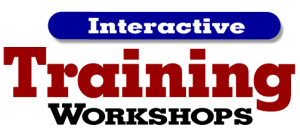As I was enjoying a cup of coffee (and, yes, a wickedly good croissant) at the local coffee shop last week, I happened to catch a snippet of a conversation between two recent high school graduates. It went like this:
 “Yeah, I just wasn’t feeling it.”
“Yeah, I just wasn’t feeling it.”
“Really? I thought that was your perfect fit.”
“Yeah, me too at first. But he didn’t really even get to know me. You know what I mean? Like, he was treating me like I was everyone else. He never even asked me about what I really like to do or what I want to do in my life or anything.”
“What a jerk!” (I replaced the unprintable descriptive she actually used.) “So, now what?”
“Oh, it’s all good. I have enrolled at XYZ University. The admissions counselor was amazing, she asked me tons of questions about what I like to do and what my friends are like and what I see myself doing in the future. She really cares about me. Next week I am going to a summer program there where she said I’ll meet lots of other freshman students like me. I can’t wait!”
Light bulb moment: College admissions and dating have a great deal in common!
“It’s not you, it’s me” is more than a classic break-up line, it is also a lesson for us in enrollment management. Developing a relationship with a prospective student (or a boyfriend/girlfriend) is much more about THEM than it is about YOU.
Many times when we are on college campuses presenting our Interactive Counselor Training Workshops, we uncover a disconnect in the minds of admissions counselors on this very issue. Too often, the counselor spends too much time selling the institution rather than trying to understand what the student sees and feels as being valuable.
Instead we encourage counselors to spend the time they have with a student to truly get to know the individual; his or her unique combination of interests, preferences, desires, anxieties, and aspirations. With that greater understanding you will naturally communicate a unique value proposition. The student will perceive you as unique among their available choices. You will have reached the coveted state of differentiation.
In The Excitement Factor!, our recently released nationally co-sponsored study, 12,000 college-bound students told us that the college’s personal interest in them, or lack of it, was influential in their college selection decision. For a significant percentage of students who reached the application or admit stages of the funnel (36% to 42% of students in the public and private pools respectively) the issue of personal attention was a key factor in their ultimate choice.
The answer to increasing enrollment in the face of the many challenges in higher education today tuition lies in taking an entirely student-centric approach to recruiting where the admission office and counselors realize that “it’s not about the institution – it’s about the student.” This is powerful when put into practice. Through our Interactive Counselor Training Workshops for counselors, we spend a great deal of time changing the focus of admission counselors. We see their transformation and improvements in productivity. Most importantly, we see changes in the recruiting process that exposes students to the information and experiences that truly interest and excite them.
From my many years in enrollment management, I know that summer is the ideal time to train and motivate your staff. Email or call me if you are interested in how we can help you have a powerhouse admissions team. And, if you want to join a prestigious group of colleges and universities that are exploring the issue of building relationships with prospective students click here for information about of our new co-sponsored study, “The Relationship Dynamic: How prospective students form a relationship with your college, and why it matters in your ability to grow and control enrollment.”
Continue the conversation on Twitter @LongmireCo. Be sure to Subscribe to Versions of Conversion today so you don’t miss any of this highly-valuable information.
 Karen Full is a highly-respected higher education professional who has held positions in admissions and enrollment management at several institutions in the Midwest and Florida. With her vast experience working with large and small, public and private colleges, Karen brings a valuable perspective to her role as an Enrollment Strategist at Longmire and Company. Call Karen at 913/492.1265 x.711 or email her at kfull@longmire-co.com. Follow Karen on Twitter @KarenAFull.
Karen Full is a highly-respected higher education professional who has held positions in admissions and enrollment management at several institutions in the Midwest and Florida. With her vast experience working with large and small, public and private colleges, Karen brings a valuable perspective to her role as an Enrollment Strategist at Longmire and Company. Call Karen at 913/492.1265 x.711 or email her at kfull@longmire-co.com. Follow Karen on Twitter @KarenAFull.



 pleasing to the eye, clean and well-kept?
pleasing to the eye, clean and well-kept? Pick any attribute and benefit that you communicate about your college and in all likelihood there are many other colleges that are saying exactly the same thing. Falling into this trap is essentially the same as stepping up to the plate and calling two strikes on yourself before the first pitch. You can’t differentiate your college in the hearts and minds of prospective students.
Pick any attribute and benefit that you communicate about your college and in all likelihood there are many other colleges that are saying exactly the same thing. Falling into this trap is essentially the same as stepping up to the plate and calling two strikes on yourself before the first pitch. You can’t differentiate your college in the hearts and minds of prospective students.

